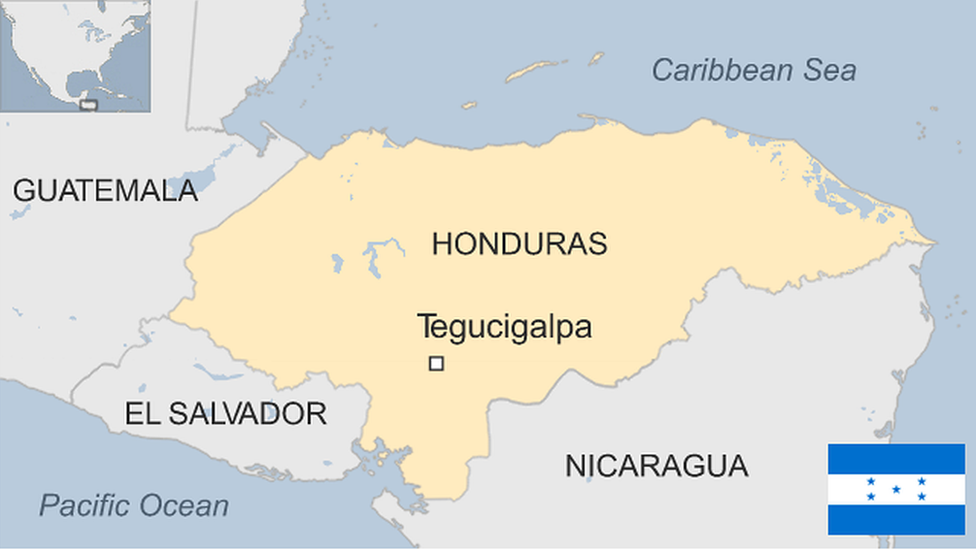
Honduras’s main trading countries
Honduras, located in Central America, has a dynamic trading relationship with several countries, primarily within the Americas, though its trade partners include some from outside the region. The country’s trade relationships are influenced by its economic structure, natural resources, and trade agreements that promote mutual economic growth.
1. The United States
The United States is Honduras’s largest trading partner, accounting for a significant portion of both its exports and imports. The two countries have close economic ties, and Honduras benefits from the Central America-Dominican Republic Free Trade Agreement (CAFTA-DR), which has fostered duty-free trade in many products. Honduran exports to the U.S. include agricultural products, such as coffee, bananas, melons, and shrimp, as well as textile and apparel goods. These exports are crucial to Honduras’s economy and employ a large segment of the population. The U.S. is also a major source of imports for Honduras, providing machinery, food products, chemicals, and other manufactured goods.
2. Guatemala
As a neighboring Central American nation, Guatemala plays an important role in Honduras’s trade landscape. The countries share both a border and strong trade relations, especially under the Central American Common Market (CACM), which aims to enhance regional trade. Honduras exports products like foodstuffs, construction materials, and some manufactured goods to Guatemala. In return, it imports agricultural products, textiles, and processed goods. The proximity between the two nations simplifies the logistics of trade and boosts cross-border business.
3. El Salvador
El Salvador is another close trading partner within Central America. The two countries’ trade is bolstered by their shared membership in the CACM, which helps streamline trade policies and reduces tariffs on many goods. El Salvador primarily imports Honduran agricultural products, seafood, and some textiles, while it exports manufactured goods, pharmaceuticals, and processed foods to Honduras. These exchanges have reinforced economic ties and fostered greater interdependence between the two nations.
4. Mexico
Mexico is an important trading partner for Honduras, with trade relations strengthened by their participation in the Mesoamerica Project, which aims to improve trade, infrastructure, and cooperation in the region. Honduras imports a range of goods from Mexico, including automobiles, machinery, chemicals, and electronics. Mexican imports are critical to the Honduran economy, providing essential goods that support both industrial and consumer needs. In turn, Honduras exports coffee, seafood, and certain agricultural products to Mexico, although the trade balance generally favors Mexico.
5. European Union (EU)
The European Union is an increasingly significant trade partner, particularly for Honduran exports. The EU has an Association Agreement with Central American countries that reduces trade barriers and encourages exports from Honduras. This agreement is especially beneficial for Honduras’s agricultural products, such as coffee and bananas, which have a strong market in Europe. The EU also imports shrimp and melons from Honduras. Meanwhile, Honduras imports various goods from the EU, including machinery, pharmaceuticals, and chemicals.
6. China
Although China is not a top export destination for Honduras, it is a substantial source of imports, providing affordable goods and materials that meet the demands of Honduran consumers and businesses. Honduras imports electronics, machinery, textiles, and other manufactured products from China. Trade between the two nations has grown in recent years, and China’s influence in the region continues to rise as it seeks stronger trade relationships in Latin America.
7. South Korea
South Korea is an emerging trade partner, and bilateral trade has grown as Honduras looks to diversify its trading relationships. South Korean goods are known for quality and technological advancement, which appeals to the Honduran market. South Korea mainly exports electronics, vehicles, and industrial equipment to Honduras, while importing seafood, coffee, and some agricultural products. The Honduras-Korea Free Trade Agreement, signed in 2019, has further stimulated trade, allowing both countries to benefit from reduced tariffs and greater market access.
8. Japan
Japan represents a smaller yet significant market for Honduran exports, especially agricultural products like coffee and shrimp. The country is also a source of high-quality manufactured goods for Honduras, including vehicles, machinery, and electronic devices. Trade between the two nations has been steady, supported by Japan’s interest in diversifying its suppliers and Honduras’s focus on expanding into Asian markets.
Conclusion
Honduras’s trading relationships are shaped by its reliance on agricultural exports and need for industrial imports, along with strategic trade agreements that reduce tariffs and enhance market access. The United States remains its most important partner due to geographic proximity and the CAFTA-DR agreement. Regional neighbors like Guatemala and El Salvador strengthen Central American economic integration, while partnerships with Mexico, the EU, and Asian countries like China, South Korea, and Japan reflect Honduras’s broadening trade horizon. These diverse trade relationships play a crucial role in Honduras’s economic stability and growth, fostering both regional cooperation and global integration.




Leave a Reply